Low body fat percentages show people that they not only look good but are also healthy. As such, people do their best when it comes to keeping their body fat under control – through special diets, exercise, and plenty of liquids.
Still, people can’t rely only on what they see. Therefore, they need some sort of special equipment to measure their body fat percentages, as well as other values that help them determine if their diet and exercise are working properly.
Here, we refer mainly to body fat scales. Given the shared opinions on these devices, let’s take a closer look at how they operate and at how accurate they are!
Contents
How Do They Help You?
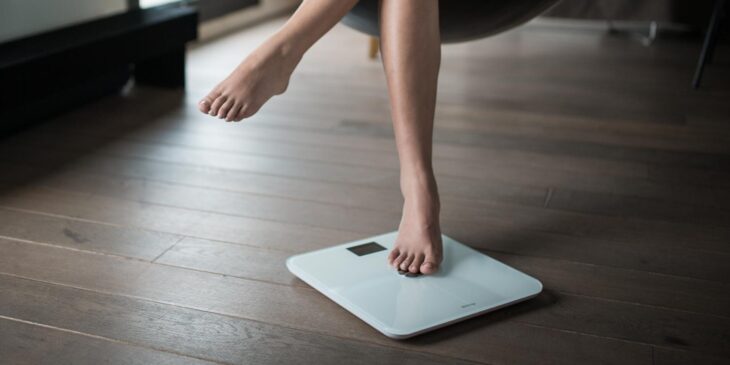
Source: galaxus
These devices got so popular because of two very impfortant features – namely, they are extremely easy to use, and they also round up the results quickly.
On top of that, brands like Ugramo bring on the market products with an astonishing number of features – practically turning such a scale into the main tool to accompany your diet/exercise.
For example, the Ugramo Fit Pro Smart Body Scale packs everything one could need from their scale. The product features an LCD capable of showing the user up to 8 body metrics, while the scale itself is equipped with 16 body composition analysis. Last but not least, you can connect it to your smartphone or PC and it’s also compatible with apps like Fitbit, Google Fit, and Apple Health.
How Do They Work?

Source: mynewsdesk
Now, let’s move on and answer the one question that’s on everybody’s mind – namely, how do they work and are they accurate?
- Body fat scales operate based on something called BIA (bio-electrical impedance). This value is then used to analyze the composition of the user’s body.
- To round up the BIA value, a light electrical current is sent through the user’s body via the top of the scale. This electricity, so to call it, is then stopped by body fat. The impedance is basically a value created by the current that interacts with body fat, while traveling through the body.
- Their body fat will react to the current, thus affecting its course and creating the impedance to the flow of current and providing the scale with the values and data it needs.
- The impedance is then used in order to calculate body fat percentage, as well as other values and percentages, depending on what features the scale is equipped with.
How Accurate Are They?
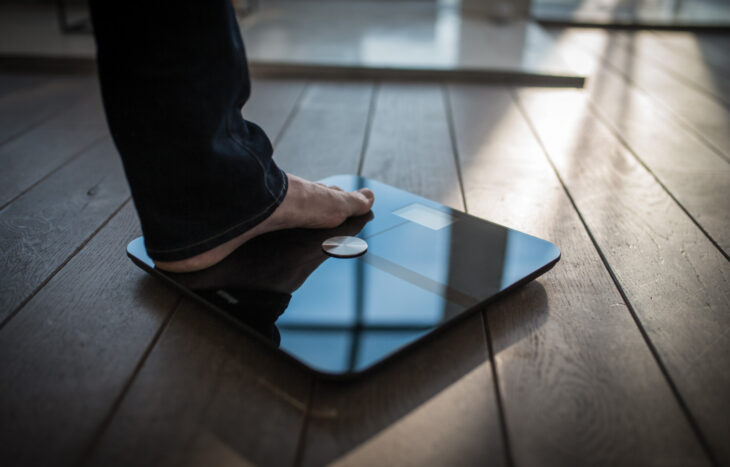
Source: tomsguide
Many people question the accuracy and consistency of such scales because they believe the current mentioned above doesn’t provide enough data for the scale to properly estimate body fat percentages.
- It’s worth mentioning that this percentage is characterized by consistent inaccuracy. This is because this value is meant to only help people measure the progress of their exercise/diet.
- While such a scale considers more variables than the common ways used to measure body fat percentages (such as level of hydration, bowel movements, etc.), they are not known to display significantly wrong or irregular values.
- As mentioned, there are other things that influence the body fat percentage estimate – duration of training sessions, the time of last training, hydration levels, as well as diet.
- It’s extremely important to keep in mind that such scales are complementary to other various body, health, and weight measurement gadgets. Body fat is a highly important value for most people but is only one part of the entire equation that makes up your body.
- If you’re trying to gain muscle or weight, for example, this percentage alone won’t tell you much and will have to be accompanied by other values and This can help adjust and accommodate your diet and training to your new body, so to speak.
BMI vs. Body Fat Scales
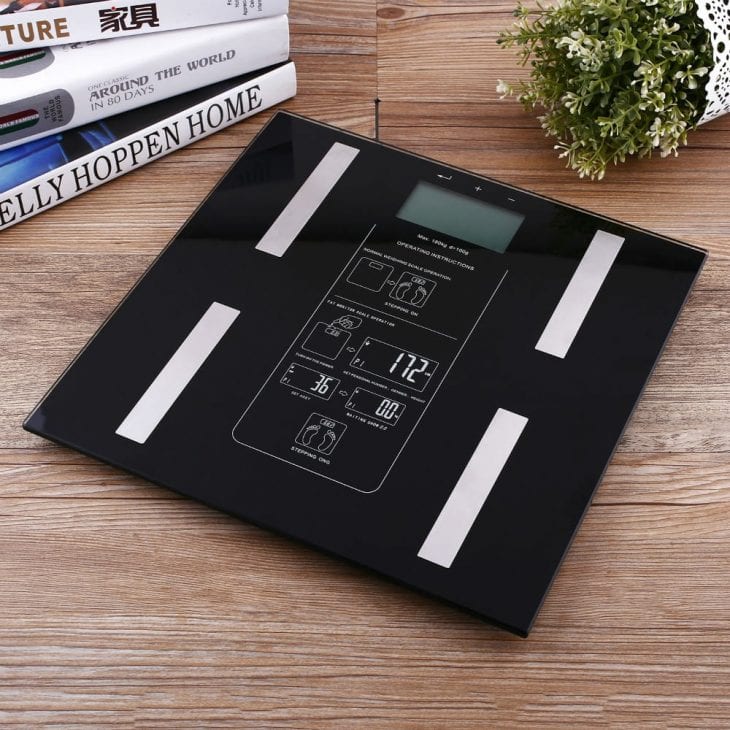
Source: thinp
We all know about BMI – body mass index. It is still one of the main do-it-yourself methods to round up body values, even if medical science has come a very long way since this index was first introduced.
Moreover, there are people claiming that BMI is much better at measuring body fat percentages than the scales specially designed to do so. Naturally, such affirmations are wrong, since BMI – as index/value – is not able to tell the difference between muscle and fat weight.
In this respect, there are also many doctors and scientists stating that, if they were to need a proper way to measure such percentages, they would not use or rely on BMI.
Body Fat Scales vs. Other Ways to Measure Body Fat
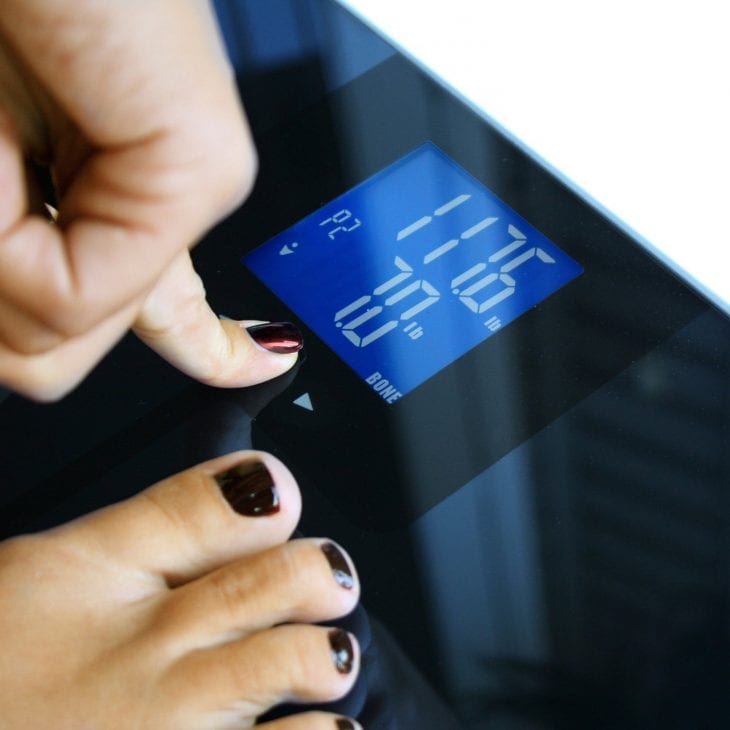
Source: EatSmart
In the early days of body fat scales, people didn’t believe that they can measure body fat correctly. As such, they would still rely on the expensive MRI or the imprecise fat calipers.
The first proper reason telling us that such scales are accurate is the fact that people don’t use the above-mentioned methods – MRI is still used, but for more serious health concerns.
Nowadays, people have more than just a weight scale in their bathroom or living room. They also have body values’ trackers, smart scales, electronic bottles, and so on.
Things to Keep in Mind
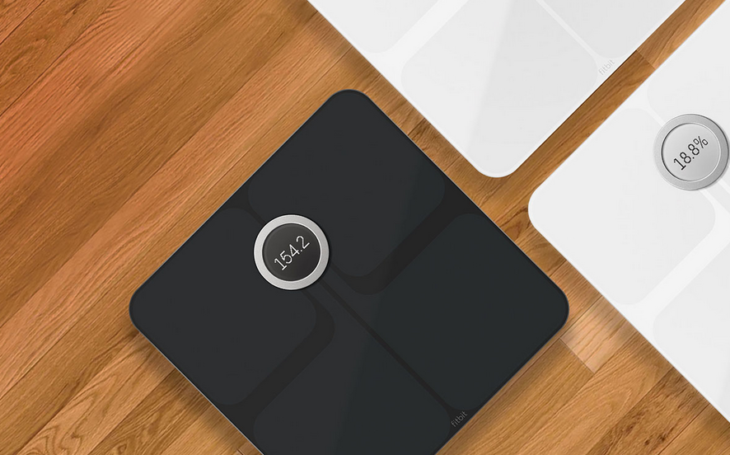
Source: insidehook
Let’s now take a look at what you should keep in mind when asking yourself if a body fat scale will help you:
- Body fat scales are known as being accurate – namely, inconsistently accurate. This is exactly the value that you are looking for when measuring body fat. Consistent values may point to a faulty scale, while inconsistent ones will show you that you are making progress.
- It is also very important to remember that you should not rely only on this type of scale, no matter what you are trying to achieve. Weight loss/gain or muscle gain/loss, you will always need several tools/gadgets available so that you know all the data you need to document your progress.
- Scales that can display multiple body values are better since you’re able to compare these values over a long period. This allows you to adjust training programs, schedules, and so on. In short, the more you know, the better you can adjust your body, diet, and training to promote good health and well-being.
In the end, research shows that such scales do their job when it comes to measuring/estimating body fat percentages. However, like the products mentioned above, it does help to have a scale showing you more than just one body value.
Knowing multiple body values will help you adjust your diet and training so that you reach your goals much faster!
